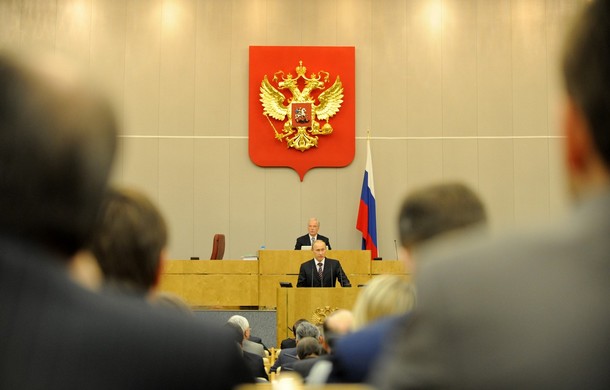
One of the things that struck me in looking at the results was the similarities to Mexico’s elections back in the day when the Institutionalized Revolutionary Party (PRI) held sway. The ruling party would maintain its predominance, but opposition parties that were part of the system would be able to win some contests–defeating PRI candidates for governorships and mayoralties, taking seats in state legislatures and the Congress. There were several reasons for this. It allowed the public to vent their displeasure at the ballot box with the system, and it kept opposition groups in the fold by showing that they could gain some political power and influence by cooperating with the system rather than fighting against it.
Is the same dynamic now at work in Russia? United Russia swept to unbelievable victories in national and regional elections but, having taken the lion’s share of the seats, also takes nearly sole-responsibility for the direction of the country. Having been battered by the financial crisis, does it now make sense for the Kremlin to permit a round of "protest voting" to register? To the extent that local United Russia politicians have been unable to deliver on social and economic concerns, is it useful to let the voters purge certain members of the party from power, while leaving the overall structure relatively intact?
After all, in keeping with the tenets of "managed pluralism", the voters were offered some choices–but not all of them. Yabloko, for instance, did not have its candidates present on the ballot in some regions (and its candidates failed in others). The parties that did pick up seats–Fair Russia, the Liberal Democrats, and the Communists–are opposition groups that work within the system, just as the National Action Party (PAN), the Party of the Authentic Mexican Revolution (PARM), and others did in the heyday of the PRI in Mexico.
So what we may be seeing is an attempt by the Kremlin to stabilize the long-term political landscape of Russia around United Russia as the dominant ruling party with three opposition parties permitted to function, to draw off steam and voter ire, and to help legitimize the system. Such an approach worked in Mexico for many decades. Will it be viable in Russia?
Nikolas K. Gvosdev [email], an Atlantic Council contributing editor, is on the faculty of the U.S. Naval War College. The views expressed are his own and do not reflect those of the Navy or the U.S. government. Photo credit: Getty Images.
Image: Putin-at-Duma.jpg
